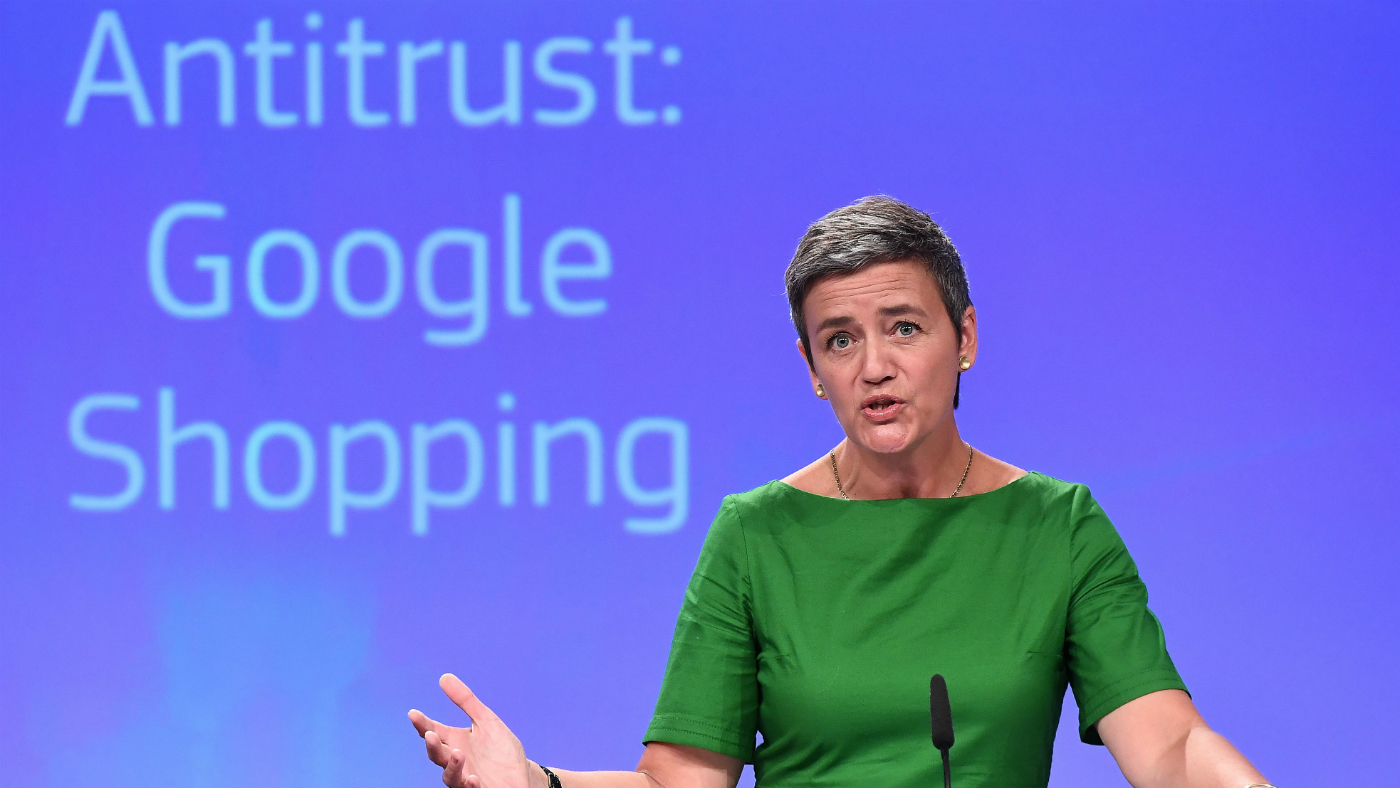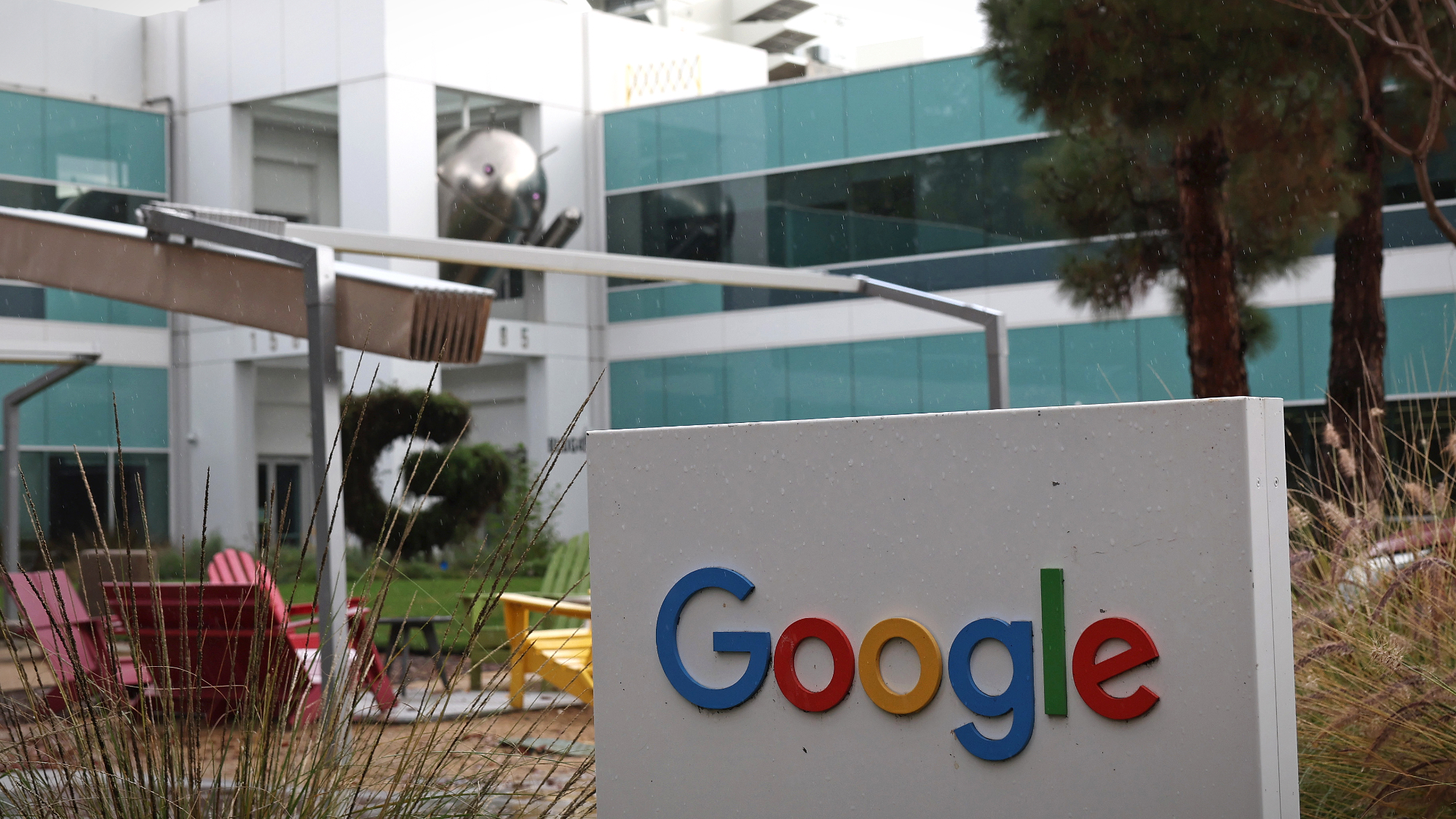Does Google deserve its big fine?
Critics say the record-breaking €2.4bn levy is motivated by politics and not anti-competitive conduct

A free daily email with the biggest news stories of the day – and the best features from TheWeek.com
You are now subscribed
Your newsletter sign-up was successful
A €2.4bn (£2.1bn) fine handed down to Google yesterday represents the European Commission "setting down a marker", says the Irish Times.
Others, like the Financial Times, use the analogy of war: they say European regulators are drawing battle lines with not only Google, but the wider US technology sector that dominates the internet and social media.
The penalty is certainly a statement in itself – it's worth more than the sum total of €2.2bn (£2bn) that was handed down to Microsoft in four fines over the course of a decade.
The Week
Escape your echo chamber. Get the facts behind the news, plus analysis from multiple perspectives.

Sign up for The Week's Free Newsletters
From our morning news briefing to a weekly Good News Newsletter, get the best of The Week delivered directly to your inbox.
From our morning news briefing to a weekly Good News Newsletter, get the best of The Week delivered directly to your inbox.
It's also more than double the €1.1bn (£970m) fine for Intel in 2009, the previous highest.
But it's the precedent it sets that's arguably of more interest, given the ease with which Google can afford the fine, accounting as it does for just three per cent of its parent company Alphabet's cash reserves.
As the first ruling of its kind, the case is a landmark that, if the verdict is upheld, could spell big trouble for other big US tech giants Facebook and Amazon.
Undeserved punishment
A free daily email with the biggest news stories of the day – and the best features from TheWeek.com
Despite all this, the FT argues Google has "lost a battle it probably deserved to win".
The problem, it says, is that the landscape of the digital world when the investigation was launched back in 2010 is so fundamentally changed as to make the complaint here irrelevant.
That complaint was first brought by a British couple, Adam and Shivaun Raff, who turned to the European Commission in 2009 after their fledgling shopping comparison website, Foundem, appeared to have been demoted in Google's search results.
A relaunch of Google's failing Froogle shopping service as Google Shopping in 2008 resulted in a new box promoting the business being added to the top of shopping search results pages, says the Daily Telegraph.
Google accounts for 90 per cent of search activity – and 95 per cent of "clicks" on search results are on the first page of links, 35 per cent of which are for the top link.
But the way people shop online has changed since 2010 and most "intent to buy" shopping searches are now carried out on Amazon, says the Telegraph.
There's also more comparison site competition that doesn't rely on search engine referral.
"In sum: did Google squeeze the life out of a certain class of company? Very possibly. Was competition thereby harmed? Probably not much," says the FT.
Playing politics
If this investigation only appears to target an "abstruse corner of ecommerce" that is not of wider relevance, some argue it's because the EU is playing politics.
"American dominance of the consumer internet has long rankled with EU politicians and claims that Vestager is motivated by economic jealousy have been pushed by technology lobbyists and US politicians," says the Telegraph.
In this case, after the US authorities dropped an investigation into similar practices in 2013, it appears that in 2014 the company "shook hands" on a deal with the then EU competition regulator Joaquin Almunia.
But then, says the paper, Edward Snowden's revelations implicated technology companies and "changed the mood".
A new competition commission took over, led by the Dane Margrethe Vestager, and a tough new approach was signalled. Google is facing two additional investigations and there have been probes into tax deals for the likes of Apple and Amazon.
'Just' war
Writing in the Telegraph, Christopher Williams says "many forget... that until a couple of years ago Microsoft was one of the main forces behind complaints against Google".
On the broader fight, the FT says "Google has lost a battle it probably deserved to win… [but] that does not mean that it will deserve victory in the battles to come, or that the war is unjust".
"Philosophically and practically, Vestager's decision is an early but significant step towards labelling the company's main product a natural monopoly that may require long-term regulation," adds Williams.
The issue here is that while Google is a private company it's also so dominant that prioritising its own services could be undermining competition in a general and pernicious sense.
Think of National Grid or BT's Openreach, two private companies that control an effective monopoly provision in electricity and broadband infrastructure and are therefore extremely tightly regulated.
There are also wider implications for Amazon, which enjoys a dominant position in many markets and in ecommerce more widely, as well as Facebook, the social media giant that is branching out into peer-to-peer sales and financial services.
End game
So where does all of this end?
Google has been asked to rectify the issues within three months. The solution has been left entirely at its discretion, with one imagines a wide margin for falling short of the commission's demands.
If this is to the first shot in a prolonged war against digital dominance of a few big firms then it could ultimately end in parts of businesses being separated, much like Openreach is being ring-fenced from the main BT business.
For Google, Williams speculates that this could ultimately end in online advertising sales being separated from the monopoly search provider.
"It is a distant threat and such drastic action would require evidence of monopoly abuse on a grand scale, but it is the sort of thing Google's army of lawyers and lobbyists worry about long term."
Its choice in the short-term is whether to try to avoid this outcome by appealing the decision – potentially delaying a final verdict for years – and defending a part of its business that will not be a big determinant of its future success.
The alternative is to "hold its hands up, pay its fine, make the necessary changes to its products and then examine how it ended up here, to avoid a repeat".
Either way, it's hard to believe this will be Google's last skirmish with the EU – or that it will get away with no changes to its business.
-
 Why are election experts taking Trump’s midterm threats seriously?
Why are election experts taking Trump’s midterm threats seriously?IN THE SPOTLIGHT As the president muses about polling place deployments and a centralized electoral system aimed at one-party control, lawmakers are taking this administration at its word
-
 ‘Restaurateurs have become millionaires’
‘Restaurateurs have become millionaires’Instant Opinion Opinion, comment and editorials of the day
-
 Earth is rapidly approaching a ‘hothouse’ trajectory of warming
Earth is rapidly approaching a ‘hothouse’ trajectory of warmingThe explainer It may become impossible to fix
-
 The EU’s war on fast fashion
The EU’s war on fast fashionIn the Spotlight Bloc launches investigation into Shein over sale of weapons and ‘childlike’ sex dolls, alongside efforts to tax e-commerce giants and combat textile waste
-
 Is Trump's tariffs plan working?
Is Trump's tariffs plan working?Today's Big Question Trump has touted 'victories', but inflation is the 'elephant in the room'
-
 Is the EU funding Russia more than Ukraine?
Is the EU funding Russia more than Ukraine?The Explainer EU remains largest importer of Russian fossil fuels despite sanctions aimed at crippling Kremlin's war effort
-
 Trump's tariffs: is EU's retaliation the best move?
Trump's tariffs: is EU's retaliation the best move?Today's Big Question Global US levy on steel and aluminium imports has the EU hitting back but the UK keeping options open
-
 Google loses antitrust suit, declared 'monopolist'
Google loses antitrust suit, declared 'monopolist'Speed Read A federal court has ruled that Google illegally dominated the internet search industry
-
 Lawmakers say tax prep companies illegally shared taxpayer data with Meta and Google
Lawmakers say tax prep companies illegally shared taxpayer data with Meta and GoogleSpeed Read
-
 How ChatGPT breathed new life into the internet search wars
How ChatGPT breathed new life into the internet search warsSpeed Read The AI arms race is upon us
-
 Search wars: Google's new challenge from AI
Search wars: Google's new challenge from AIfeature How will Microsoft even things up?